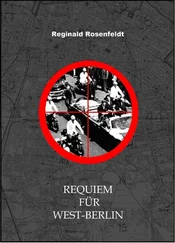Isaiah Berlin - Russian Thinkers
Здесь есть возможность читать онлайн «Isaiah Berlin - Russian Thinkers» весь текст электронной книги совершенно бесплатно (целиком полную версию без сокращений). В некоторых случаях можно слушать аудио, скачать через торрент в формате fb2 и присутствует краткое содержание. Год выпуска: 0101, Жанр: Старинная литература, на русском языке. Описание произведения, (предисловие) а так же отзывы посетителей доступны на портале библиотеки ЛибКат.
- Название:Russian Thinkers
- Автор:
- Жанр:
- Год:0101
- ISBN:нет данных
- Рейтинг книги:3 / 5. Голосов: 1
-
Избранное:Добавить в избранное
- Отзывы:
-
Ваша оценка:
- 60
- 1
- 2
- 3
- 4
- 5
Russian Thinkers: краткое содержание, описание и аннотация
Предлагаем к чтению аннотацию, описание, краткое содержание или предисловие (зависит от того, что написал сам автор книги «Russian Thinkers»). Если вы не нашли необходимую информацию о книге — напишите в комментариях, мы постараемся отыскать её.
Russian Thinkers — читать онлайн бесплатно полную книгу (весь текст) целиком
Ниже представлен текст книги, разбитый по страницам. Система сохранения места последней прочитанной страницы, позволяет с удобством читать онлайн бесплатно книгу «Russian Thinkers», без необходимости каждый раз заново искать на чём Вы остановились. Поставьте закладку, и сможете в любой момент перейти на страницу, на которой закончили чтение.
Интервал:
Закладка:
about Akhmatova and Pasternak, is to be found in Pmonallmpt7!ssions. For
book reviews and other smaller pieces, I refer readers to the bibliography
already cited.
Introduction
A COMPLEX VISION
Aileen Kelly
Do not look for solutions in this book-there
arc none; in general modern man has no solutions.
Alexander Herzen, Introduction to From the Other Shore
In an attempt to explain the Russian revolution to Lady Ottoline
Morrell, Bertrand Russell once remarked that, appalling though
Bolshevik despotism was, it seemed the right sort of government for
Russia: 'If you ask yourself how Dostoevsky's characters should be
governed, you will understand.'
The view that despotic socialism was no more than Russia deserved
would be accepted by many western liberals as not unjust, at least with
regard to the 'devils' of Dostoevsky's novel, the Russian radical
intelligentsia. In the degree of their alienation from their society and
of their impact on it, the Russian intelligentsia of the nineteenth
century were a phenomenon almost sui generis. Their ideological
leaders were a small group with the cohesivenes-; and sense of mission
of a religious sect. In their fervent moral opposition to the existing
order, their single-minded preoccupation with ideas, and their faith in
reason and science, they paved the way for the Russian revolution, and
thereby achieved major historical significance. But they are all too
often treated by English and American historians with a mixture of
condescension and moral revulsion; because the theories to which they
were so passionately attached were not their own, but borrowed from
the west and usually imperfectly understood; and because in their
fanatical passion for extreme ideologies they are held to have rushed,
like Dostoevsky's devils, to blind self-destruction, dragging their
country, and subsequently much of the rest of the world, after them.
The Russian revolution and its aftermath have done much to strengthen
xiii
R U S SIAN THIN K E R S
the belief, deeply entrenched in the Anglo-Saxon outlook, that a
passionate interest in ideas is a symptom of mental and moral disorder.
One liberal voice has strongly and consistently dissented from this
view of the Russian intelligentsia-a voice of remarkable distinction.
Isaiah Berlin is one of the most outstanding liberal thinkers of this
century: his Four Essays 011 Libtrty are contributions of the first importance to the study of the fundamental problems of political philosophy.
His originality as a thinker derives from a combination of a liberalism
in the English tradition with a wholly European fascination with ideas
and their effects on political practice: his writings are penetrated with
the conviction that liberal values are best understood and defended by
those who seek to understand the part played by ideas in action, and in
particular the intellectual and moral attractions of what he calls the
'great despotic visions' of the right and left. His distinctive contribution
to English intellectual life has been an effective opposition to the last
half-century of relative indifference to intellectual movements in
Europe. In essays and lectures, masterpieces of vivid and lucid exposition, he has acquainted a wide audience with great European intellectual traditions, with the ideas and personalities of some of the most original thinkers of the post-Renaissance world, and, in the -essays
collected together for the first time in this book, with the phenomenon
of the Russian intelligentsia.
Isaiah Berlin's approach to the intelligentsia has been directed by his
interest in the way in which ideas are 'lived through' as solutions to
moral demands. In contrast to the majority of studies on this subject,
which set out to j udge political solutions in the light of historical hindsight, he is above all concerned with the social and moral questions which the intelligentsia posed, the dilemmas that they sought to resolve.
Though his essays on Russian subjects stand by themselves, with no
need of philosophical annotation or cross-reference, they are also a
substantial contribution to the central theme of all his writings on
intellectual history, and their originality can best be appreciated if they
are approached within this wider framework.
The central concern of Berlin's writings has been the exploration of
what he sees as one of the m_ost fundamental of the open issues on
which men's moral conduct depends: are all absolute values ultimately
compatible with one another, or is there no single final solution to the
problem of how to live, no one objective and universal human ideal?
In wide-ranging studies he has explored the psychological and historical
roots and consequences of monist and pluralist visions of the world.
xiv
INT R ODUCTION
He has argued that the great totalitarian structures built on Hegelian
and Marxist foundations are not a terrible aberration, but rather a
logical development of the major assumption in all the central currents
of western political thought: that there is a fundamental unity underlying all phenomena, deriving from a single universal purpose. This can be discovered, according to some, through scientific inquiry,
according to others, through religious revelation, or through metaphysical speculation. When discovered, it will provide men with a final solution to the question of how to live.
Though the most extreme forms of this faith, with their dehumanising visions of men as instruments of abstract historical forces, have led to criminal perversions of political practice, he emphasises that the faith
itself cannot be dismissed as the product of sick minds. It is the basis of
all traditional morality and is rooted in 'a deep and incurable metaphysical need', arising from man's sense of an inner split and his yearning for a mythical lost wholeness. This yearning for absolutes is
very often the expression of an urge to shed the burden of responsibility
for one's fate by transferring it to a vast impersonal monolithic whole
'nature, or history, or class or race, or the "harsh realities of our time",
or the irresistible evolution of the social structure, that will absorb and
integrate us into its limitless, indifferent, neutral texture, which it is
senseless to evaluate or criticise, and against which we fight to our
certain doom'.
Berlin believes that precisely because monistic visions of reality
answer fundamental human needs, a truly consistent pluralism has been
a comparatively rare historical phenomenon. Pluralism, in the sense in
which he uses the word, is not to be confused with that which is
commonly defined as a liberal outlook-according to which all extreme
positions are distortions of true values and the key to social harmony
and a moral life lies in moderation and the golden mean. True
pluralism, as Berlin understands it, is much more tough-minded and
intellectually bold: it rejects the view that all conflicts of values can be
finally resolved by synthesis and that all desirable goals may be reconciled. It recognises that human nature is such that it generates values which, though equally sacred, equally ultimate, exclude one another,
without there being any possibility of establishing an objective hierarchical relation between them. Moral conduct therefore may involve making agonising choices, without the help of universal criteria,
between incompatible but equally desirable values.
This permanent possibility of moral uncertainty is, in his view, the
Читать дальшеИнтервал:
Закладка:
Похожие книги на «Russian Thinkers»
Представляем Вашему вниманию похожие книги на «Russian Thinkers» списком для выбора. Мы отобрали схожую по названию и смыслу литературу в надежде предоставить читателям больше вариантов отыскать новые, интересные, ещё непрочитанные произведения.
Обсуждение, отзывы о книге «Russian Thinkers» и просто собственные мнения читателей. Оставьте ваши комментарии, напишите, что Вы думаете о произведении, его смысле или главных героях. Укажите что конкретно понравилось, а что нет, и почему Вы так считаете.










